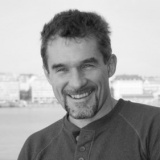HELCOM: Sewage sludge recycling crucial for Baltic Sea region

By Dmitry Frank-Kamenetsky, Professional Secretary, HELCOM
Sewage sludge has remarkable potential in many economic areas, but in most cases is still disposed of in landfills. The Baltic Marine Environment Protection Commission (HELCOM) is developing a new Recommendation to promote maximum utilisation of this valuable subproduct of wastewater treatment.
Efficient municipal wastewater treatment produces vast amounts of sludge. The countries in the Baltic Sea watershed generate about 3.5 million tonnes of dry solids annually. This is expected to increase to almost four million tonnes by 2020.
All this sludge requires proper and environmentally sustainable management before final disposal. To address this critical issue, HELCOM is currently developing a new Recommendation on sewage sludge handling. It will guide the coastal states towards more environmentally safe practices, and also draw attention to the economic potential of sewage sludge.
Sewage sludge is a potential threat to the environment. It contains a number of highly harmful heavy metals, such as cadmium and mercury, as well as pharmaceuticals that may be quite resistant to treatment procedures. Pathogens in sewage sludge are a threat to human health and the environment.
At the same time, sewage sludge from wastewater treatment plants contains nutrients, micronutrients and particles that increase humus in the soil.
Sewage sludge has remarkable potential for energy production, particularly by producing biogas or direct incineration.
In some countries, treated sludge is used for agricultural production, land reclamation, landscaping or maintaining urban green areas. In some cases, sludge products can also be applied for certain types of forestry, if the competent authority permits it.
Nevertheless, in most cases sewage sludge is still disposed of in landfills.
Why the new HELCOM Recommendation?
The main aim of the forthcoming HELCOM Recommendation on the handling of sewage sludge is to promote sustainable and ecologically sound techniques and practices and to ensure the maximum utilisation of the valuable substances and energy potential.
Recycling the nutrients in sewage sludge is crucial for the Baltic Sea region, as its vulnerable ecosystem is still under pressure from high input of anthropogenic nutrients. The Recommendation will facilitate international cooperation and the transfer of advanced techniques and practices between countries.
The new Recommendation originates from the commitment made by the HELCOM Ministerial Meeting in 2013. The meeting agreed to enhance the recycling of phosphorus, especially in agriculture and wastewater treatment, and to promote the development of related methodology. In 2014, the EU included phosphates in its list of critical raw materials.
The development of the draft Recommendation has been led by Germany and Russia and, after a few commenting rounds, is currently awaiting adoption in 2016.

Dmitry Frank-Kamenetsky
Professional Secretary at HELCOM since 2014, responsible for Pressure and Agri groups.
Earlier, Mr Frank-Kamenetsky served as a head of division in St. Petersburg city government, Russia.
Photo: HELCOM
HELCOM